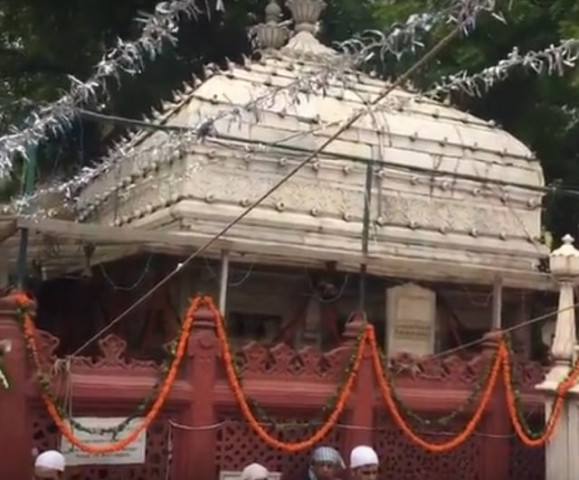Indian denies visas to 118 Pakistanis for Khusrau’s urs
Federal religious affairs ministry submitted 198 visa applications to India of which only 80 were accepted

India has turned down the visa applications of 118 Pakistanis who wanted to participate in the upcoming annual urs celebrations of Hazrat Amir Khusrau and only 80 others on Thursday were allowed to enter the neighbouring country to attend the event.
The federal religious affairs ministry had submitted a total of 198 visa applications to India for this purpose.
Pilgrims from different cities of the country had reached Lahore and waited for two days in the city to receive their visas.
However, only 80 of them were permitted to cross the Wagah border near Lahore to depart for New Delhi.
The rest of them returned to their native cities and towns feeling disappointed that their visa application was rejected.
The urs celebrations are taking place from April 23 to April 30 in Delhi.
Hazrat Khusrau was a spiritual disciple of Sufi saint Hazrat Khawaja Syed Muhammad Nizamuddin Auliya.
Read also: Pakistani pilgrims in limbo amid visa hassles
Born in 1253 AD in Patiyali in modern-day Uttar Pradesh, Hazrat Khusrau is an iconic figure in the cultural history of South Asia. He was a Persian poet and scholar of the medieval Delhi Sultanate.
He wrote several Sufi poems on divine love and mysticism. Hazrat Khusrau’s ideas about love and mysticism deeply influenced other Sufi thinkers, shaping how they approached spirituality, art, and literature.
He was also a scholar of history and philosophy. He was proficient in Arabic, Persian, Turkish, Sanskrit and Hindi.
He is regarded as the creator of qawwali by fusing the Persian, Turkic, Arabic, and Indian singing styles together in the 13th century. He also introduced the ghazal style of singing in the Subcontinent.
He is credited as the investor of the musical instrument Sitar.
Hazrat Khusrau wrote poetry primarily in Persian but also in Hindavi, and credited with the creation of Haliq Bari, a poetry vocabulary combining Arabic, Persian, and Hindavi words. He also invented Tarana and Trivat.
(With input from our News Desk in Karachi)



















COMMENTS
Comments are moderated and generally will be posted if they are on-topic and not abusive.
For more information, please see our Comments FAQ